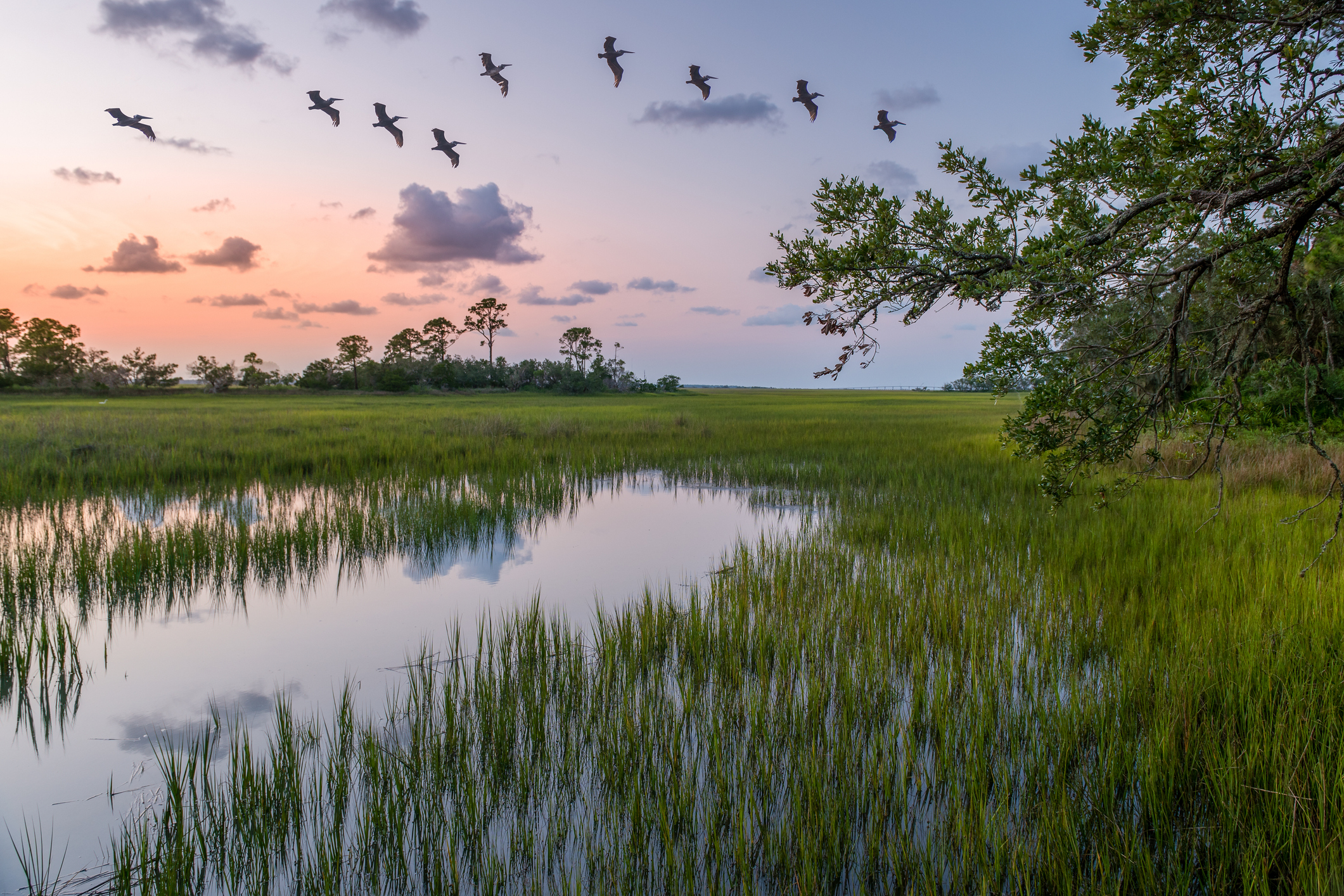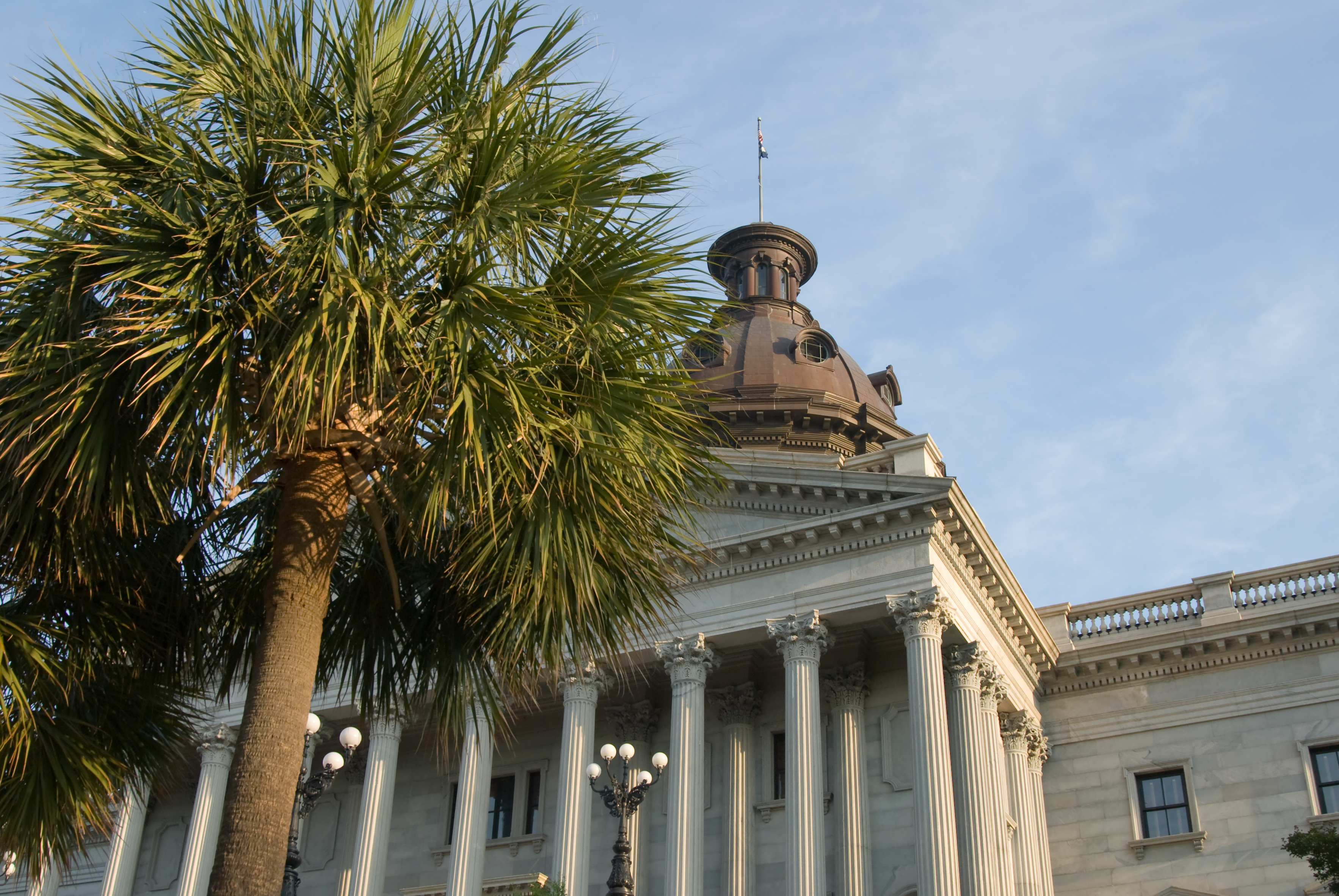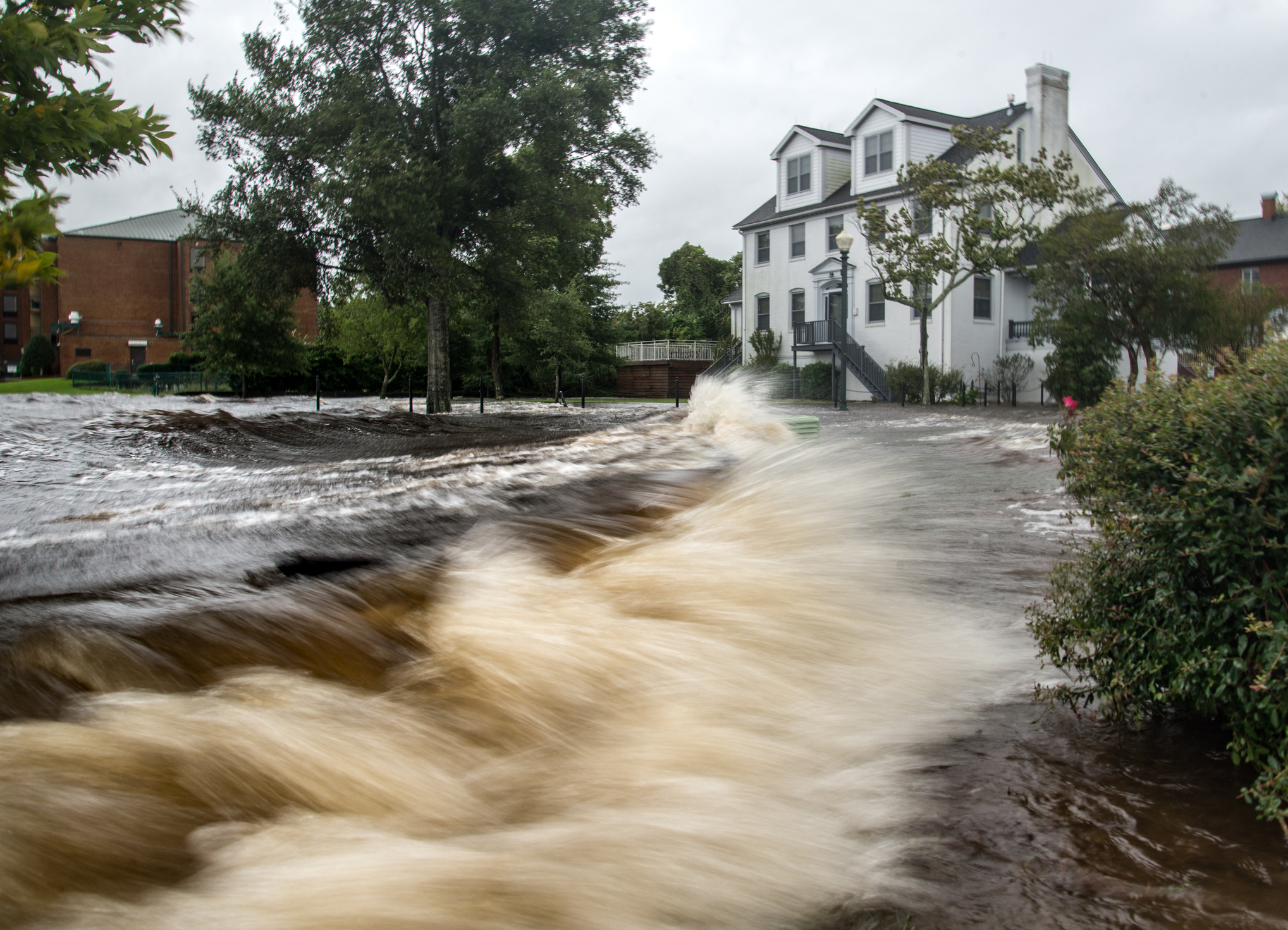Eight Things You Must Know About Retiring to the Carolinas
From picturesque beach towns to cozy mountain communities, North Carolina and South Carolina offer retirees plenty of incentives.

Kathryn Pomroy

Profit and prosper with the best of Kiplinger's advice on investing, taxes, retirement, personal finance and much more. Delivered daily. Enter your email in the box and click Sign Me Up.
You are now subscribed
Your newsletter sign-up was successful
Want to add more newsletters?

Delivered daily
Kiplinger Today
Profit and prosper with the best of Kiplinger's advice on investing, taxes, retirement, personal finance and much more delivered daily. Smart money moves start here.

Sent five days a week
Kiplinger A Step Ahead
Get practical help to make better financial decisions in your everyday life, from spending to savings on top deals.

Delivered daily
Kiplinger Closing Bell
Get today's biggest financial and investing headlines delivered to your inbox every day the U.S. stock market is open.

Sent twice a week
Kiplinger Adviser Intel
Financial pros across the country share best practices and fresh tactics to preserve and grow your wealth.

Delivered weekly
Kiplinger Tax Tips
Trim your federal and state tax bills with practical tax-planning and tax-cutting strategies.

Sent twice a week
Kiplinger Retirement Tips
Your twice-a-week guide to planning and enjoying a financially secure and richly rewarding retirement

Sent bimonthly.
Kiplinger Adviser Angle
Insights for advisers, wealth managers and other financial professionals.

Sent twice a week
Kiplinger Investing Weekly
Your twice-a-week roundup of promising stocks, funds, companies and industries you should consider, ones you should avoid, and why.

Sent weekly for six weeks
Kiplinger Invest for Retirement
Your step-by-step six-part series on how to invest for retirement, from devising a successful strategy to exactly which investments to choose.
North Carolina and South Carolina rank high on the list of captivating retirement destinations. In 2025, South Carolina continued to rank as one of the best places to retire in the U.S., according to USA Today. And Better Health For All listed North Carolina as one of the five top up-and-coming retirement spots for 2026.
To give you a better view of all the Carolinas have to offer, we interviewed retirees who have relocated to the Carolinas, as well as real estate and insurance agents who welcome new retirees to the region every year.
Andrew and Lynn Lazar, for instance, sold their longtime home in Hillsborough, N.J., and landed in Latitude Margaritaville Hilton Head, Hardeeville, S.C. Latitude Margaritaville is an active adult community catering to Parrotheads, the devoted fans of singer-songwriter Jimmy Buffett (new homeowners are gifted a “Margaritaville” margarita blender). Yes, there's a retirement community for everyone.
“As Parrotheads, Margaritaville was a no-brainer,” Andrew Lazar tells us. “When our granddaughter was born, we pulled the trigger and moved forward with our plans to retire and move to our permanent vacation! The houses have that beachy feel. The amenities are beautiful. The pool is a tropical paradise. My daughter said that it’s like living in a resort.”
There were adjustments. They missed their New Jersey family and friends — and good pizza. But they don’t miss the crushing property taxes New Jersey is known for (more on that in a moment).
Are the Carolinas high on your list of possible retirement locales? Here are eight things you need to know about retiring in North or South Carolina.

1. The Carolinas are a popular ‘halfback’ destination
For years, the Carolinas and other mid-Southern states have seen an uptick in retirees. Some are northerners who made the Carolinas a direct target for retirement. Others are the “halfbacks" — northerners who initially thought they'd retire in Florida, but when they landed there, decided to beat a path halfway back. Maybe you're looking to relish the four seasons in the Blue Ridge Mountains, or you want to avoid Florida's sweltering weather.
Oft-repeated advice from recent retirees: Visit your targeted retirement destinations a few times, and go so far as to test-drive the destination by renting for an extended period before making the plunge. For example, Frank and Carol Hammon retired in Ocean Isle Beach, N.C., 40 miles south of Wilmington, N.C., and about 30 minutes from the South Carolina border and the Myrtle Beach resort area. “We’ve been vacationing here at Ocean Isle Beach since 1985,” Frank Hammon says.
The Hammons purchased a one-bedroom condo a block from where they rented more than 10 years ago when they were still living and working in Virginia.

2. South Carolina is tax-friendlier to retirees than North Carolina
Kiplinger.com maintains a thorough Retiree Tax Map — a state-by-state guide to taxes on retirement income, state sales taxes, property tax breaks for seniors, estate taxes and more. Read up on North Carolina's state tax guide, as well as South Carolina's state tax guide, to learn how much tax you'll be paying.
Retiring in North Carolina
In North Carolina, your Social Security benefits are not taxable; however, the state taxes most other retirement income at the flat rate of 4.5%.
Additionally, North Carolina has what's known as the "Bailey exemption." Income from federal government retirement plans, or designated North Carolina state and local government retirement plans, is exempt if the retiree had five or more years of creditable service as of August 12, 1989.
North Carolina also offers a homestead property tax exemption for eligible residents. The state excludes from property taxes a portion of the appraised value of a permanent residence. However, to qualify, the owners must occupy the home and be aged 65 or older or totally and permanently disabled.
Retiring in South Carolina
Like North Carolina, South Carolina does not tax Social Security benefits but does tax other forms of retirement income, and the state's income tax rate ranges from 0% to 6.2%. However, individuals over the age of 65 can claim a $10,000 taxable income deduction on retirement income, according to SmartAsset.
There’s also no inheritance or estate tax, and property taxes are on the low side. For homeowners 65 and older, the state's homestead exemption allows the first $50,000 of a property's fair market value to be exempt from local property taxes.
On the downside, South Carolina does have sales taxes. Statewide, the rate is 6%. However, localities can add as much as 3%, potentially topping out at a 9% hit to your wallet, though the average combined rate for both states is between 7% and 7.5% in 2025, according to the Tax Foundation.

3. You can go back to college for free as a retiree in the Carolinas
Good news for retirees eyeing North Carolina as a landing pad for their golden years: State residents 65 and older can, on a space-available basis, audit classes tuition-free at the campuses of the University of North Carolina, as well as the state’s community colleges.
Registration fees are waived, too, but there may be an application fee, depending on the college. Want to earn college credit? Residents 65 and older can take as many as six hours of for-credit courses for free at the state’s community colleges each semester.
It’s even better in South Carolina. All South Carolina residents 60 and older can attend any state-funded college tuition-free on a space-available basis. This includes courses taken for credit or audited. You’ll have to apply for enrollment to the school you are interested in attending, and you’ll be on the hook for any course fees, textbooks and other mandatory materials.
Check out our Free (or Cheap) College for Retirees in All 50 States guide to learn more about education options in other states.

4. Hurricanes mean you might have to evacuate your Carolina home
It’s not like hurricanes are unexpected in North Carolina and South Carolina. After all, the region’s professional hockey team is named, well, the Hurricanes.
Anyone who’s visited the Carolinas on vacation knows that major weather events are baked into coastal living. You’ve seen the street signs pointing out hurricane evacuation routes. North Carolina averages one tropical cyclone making landfall every two years on average. Of those, 52 are hurricanes, resulting in an average of one hurricane making landfall every 3.25 years.
In Fall 2024, massive storm Helene left a trail of devastation across six states in the southeast US, destroying communities and claiming more than 116 lives. The mountainous region of western North Carolina saw homes and bridges washed away, villages flattened, and the tourist city of Asheville cut off.
So does that mean you must have hurricane insurance as a homeowner in the Carolinas? No. Technically, there isn’t any. Instead, homeowners combine homeowners insurance, making certain it includes windstorm coverage, with flood insurance.
According to Value Penguin, federal flood insurance costs an average of $751 a year in South Carolina and an average of $916 in North Carolina. The national average is $818 per year.
Oh, and there’s a hurricane deductible, typically around 5%, built into homeowners’ insurance policies in 19 states, including North Carolina and South Carolina. If a house is insured for $300,000 and has a 5% deductible, the first $15,000 of a claim must be paid out of the policyholder’s pocket, according to the Insurance Information Institute. The details of hurricane deductibles are spelled out on the declarations page of homeowners' policies.

5. Some incoming Carolina retirees are baby-chasers
Baby-chasers? Yup. It’s a thing. According to an article on MSN by the Wall Street Journal, baby chasers are boomers who are following their kids (and grandkids) who have moved to new cities for lucrative jobs. In terms of the Carolina's, most of the migration has been to the Charlotte area. There's even a baby chaser index showing Charlotte ranking 4th in 2022.
According to recent data (February 2025) from the Commercial Real Estate Development Association (NAIOP), North Carolina gained nearly 111,000 newcomers, mainly from Florida and New York, while South Carolina added over 72,000 new residents. Many of these newcomers were retirees. These states rank third and fourth nationally for inbound migration. North Carolina welcomes almost 10 newcomers per 1,000 residents, while South Carolina sees over 13 per 1,000. While this influx is fueling economic growth, it is also driving up housing costs.
And many of these baby-chasers are monied, Meyers Research found. That's especially the case with those who sell their long-time homes in the Northeast, tap the more affordable real estate market in North Carolina, and have money to pocket. And, the Charlotte area is rising to the rush. Suburban Lancaster County is a hotbed for boomers settling into ever-growing numbers of active adult communities, including Tree Tops by Lennar, according to Meyers. The top-selling adult community in the county, Meyers says, offers 19 different floor plans for ranch homes. Prices currently start in the low $400,000's.

6. Popular destinations in the Carolinas retirees are targeting
The shortlist is a long one. The Carolinas are actively recruiting retirees, and local governments are friendly to developers of the numerous over-55 communities that surround beach and mountain communities.
The latest U.S. Census Bureau population estimates, which are from April 2010 to July 2019 show:
- The region straddling the North Carolina-South Carolina border that includes Myrtle Beach, Conway, and North Myrtle Beach grew a whopping 32.6% last decade with the arrival of 122,581 new residents.
- Raleigh, N.C.’s population grew by 16% with the arrival of 180,756 new residents.
- South Carolina’s Hilton Head Island-Bluffton-Beaufort region’s population grew 15.6%, with 29,093 new residents.
- Charleston-North Charleston, S.C., gained 101,288 new citizens in that time frame, a 15.2% growth rate.
Popular retirement towns in North Carolina include Brevard and Asheville in the mountains, New Bern and Oak Island, as well as Southport, Carolina Beach and Chapel Hill. (Hurricane Helene in 2024 caused severe damage to Asheville, and the city is still recovering).
Retirement communities also dot some of the top retirement destinations in South Carolina, including popular destination towns Georgetown, Spartanburg, West Columbia, Greenville and Hilton Head Island.

7. There’s lots of sand — both beaches and golf courses — in the Carolinas
You'll find lots of sand — both beaches and golf courses — across the Carolinas.
For example, there are several dozen active adult retirement communities in the Myrtle Beach, SC area (a popular tourist destination, and also an increasingly popular retirement destination), including Myrtle Beach Golf & Yacht Club, with more than 1,000 homes; The Bays at Prince Creek, with 799 homes; and Del Webb at Grande Dunes Myrtle Beach, a sold-out 700+ home community wrapped around the Intercoastal Waterway.
And retirees will find plenty of beach to roam along the Grand Strand, a 60-mile arc of beach that stretches across the Carolina coast around Myrtle Beach. Beaches around Hilton Head are also popular with local retirees, especially in the fall, when tourism drops off.
The North Carolina coast includes 300 miles of barrier-island beaches, and VisitNC.com says these are the 25-plus best. And we’d be remiss if we didn’t mention the Outer Banks.
Golfers note: North Carolina runs hot with more than 575 courses. There are more than 400 courses in South Carolina, according to The Golf Mine.

8. Head for the hills in North Carolina
If you're looking for a getaway at a higher elevation, look no further than the mountains of North Carolina. Want to get away from the hustle and bustle of the big city? You'll find plenty of outdoor adventure opportunities, majestic scenery, and wide-open spaces, parks, and attractions to visit for solo trips, family vacations, or romantic getaways.
Of course, if you'd rather have a more laid-back vacation, there are also excellent dining options, historical and cultural attractions and luxury accommodations — with a view.
And if you're a craft beer enthusiast, you'll like that North Carolina is home to more than 400 breweries and brewpubs — the largest number in the south. If you're up for an adventure-filled getaway, need a relaxing vacation, or prefer a little of each, check out the North Carolina mountains. Some small towns worth discovering, which are charming and extremely affordable, include Hendersonville, Weaverville, Black Mountain and Brevard.
Related Content
Profit and prosper with the best of Kiplinger's advice on investing, taxes, retirement, personal finance and much more. Delivered daily. Enter your email in the box and click Sign Me Up.

Bob was Senior Editor at Kiplinger.com for seven years and is now a contributor to the website. He has more than 40 years of experience in online, print and visual journalism. Bob has worked as an award-winning writer and editor in the Washington, D.C., market as well as at news organizations in New York, Michigan and California. Bob joined Kiplinger in 2016, bringing a wealth of expertise covering retail, entertainment, and money-saving trends and topics. He was one of the first journalists at a daily news organization to aggressively cover retail as a specialty and has been lauded in the retail industry for his expertise. Bob has also been an adjunct and associate professor of print, online and visual journalism at Syracuse University and Ithaca College. He has a master’s degree from Syracuse University’s S.I. Newhouse School of Public Communications and a bachelor’s degree in communications and theater from Hope College.
- Kathryn PomroyContributor
-
 Over 65? Here's What the New $6K Senior Tax Deduction Means for Medicare IRMAA
Over 65? Here's What the New $6K Senior Tax Deduction Means for Medicare IRMAATax Breaks A new tax deduction for people over age 65 has some thinking about Medicare premiums and MAGI strategy.
-
 U.S. Congress to End Emergency Tax Bill Over $6,000 Senior Deduction and Tip, Overtime Tax Breaks in D.C.
U.S. Congress to End Emergency Tax Bill Over $6,000 Senior Deduction and Tip, Overtime Tax Breaks in D.C.Tax Law Here's how taxpayers can amend their already-filed income tax returns amid a potentially looming legal battle on Capitol Hill.
-
 5 Investing Rules You Can Steal From Millennials
5 Investing Rules You Can Steal From MillennialsMillennials are reshaping the investing landscape. See how the tech-savvy generation is approaching capital markets – and the strategies you can take from them.
-
 When Estate Plans Don't Include Tax Plans, All Bets Are Off: 2 Financial Advisers Explain Why
When Estate Plans Don't Include Tax Plans, All Bets Are Off: 2 Financial Advisers Explain WhyEstate plans aren't as effective as they can be if tax plans are considered separately. Here's what you stand to gain when the two strategies are aligned.
-
 Counting on Real Estate to Fund Your Retirement? Avoid These 3 Costly Mistakes
Counting on Real Estate to Fund Your Retirement? Avoid These 3 Costly MistakesThe keys to successful real estate planning for retirees: Stop thinking of property income as a reliable paycheck, start planning for tax consequences and structure your assets early to maintain flexibility.
-
 I'm a Financial Planner: These Small Money Habits Stick (and Now Is the Perfect Time to Adopt Them)
I'm a Financial Planner: These Small Money Habits Stick (and Now Is the Perfect Time to Adopt Them)February gets a bad rap for being the month when resolutions fade — in fact, it's the perfect time to reset and focus on small changes that actually pay off.
-
 Quiz: Do You Know How to Avoid the 'Medigap Trap?'
Quiz: Do You Know How to Avoid the 'Medigap Trap?'Quiz Test your basic knowledge of the "Medigap Trap" in our quick quiz.
-
 We Retired at 62 With $6.1 Million. My Wife Wants to Make Large Donations, but I Want to Travel and Buy a Lake House.
We Retired at 62 With $6.1 Million. My Wife Wants to Make Large Donations, but I Want to Travel and Buy a Lake House.We are 62 and finally retired after decades of hard work. I see the lakehouse as an investment in our happiness.
-
 Social Security Break-Even Math Is Helpful, But Don't Let It Dictate When You'll File
Social Security Break-Even Math Is Helpful, But Don't Let It Dictate When You'll FileYour Social Security break-even age tells you how long you'd need to live for delaying to pay off, but shouldn't be the sole basis for deciding when to claim.
-
 One of the Most Powerful Wealth-Building Moves a Woman Can Make: A Midcareer Pivot
One of the Most Powerful Wealth-Building Moves a Woman Can Make: A Midcareer PivotIf it feels like you can't sustain what you're doing for the next 20 years, it's time for an honest look at what's draining you and what energizes you.
-
 I'm a Wealth Adviser Obsessed With Mahjong: Here Are 8 Ways It Can Teach Us How to Manage Our Money
I'm a Wealth Adviser Obsessed With Mahjong: Here Are 8 Ways It Can Teach Us How to Manage Our MoneyThis increasingly popular Chinese game can teach us not only how to help manage our money but also how important it is to connect with other people.
